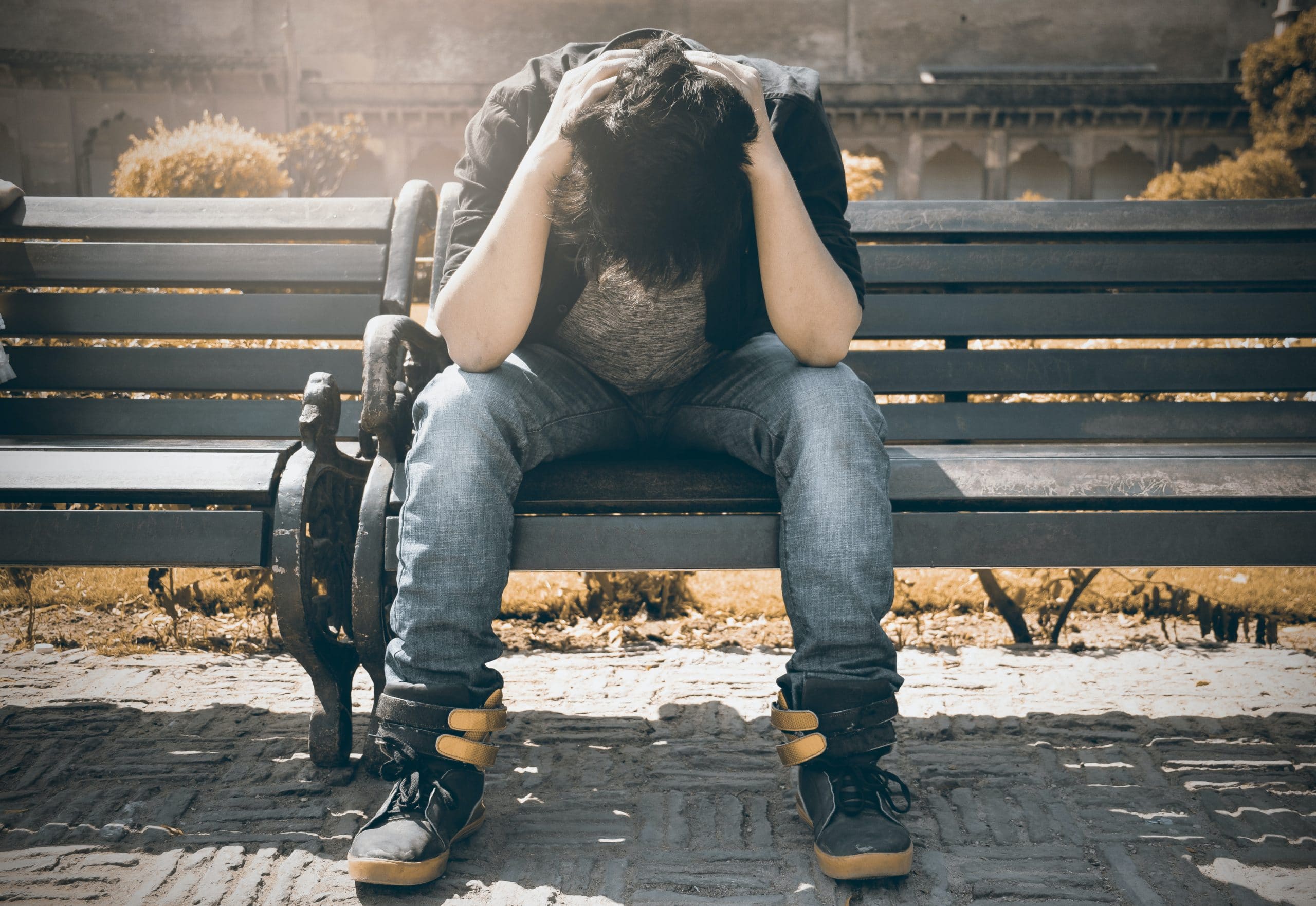I Think I Am Depressed
I Think I Am Depressed
If you are thinking that
I think I am depressed. I don’t want to get out of bed in the morning. I’m always tired and don’t have the energy to do things that are important or fun.
Then read this post till the end as this post is written just for you to overcome depression or whatever you are feeling right now.
A person can be suffering from depression when they have feelings of sadness, hopelessness, worthlessness, guilt, or helplessness for a period of time. depression also can include physical symptoms such as pain and weight loss and changes in eating habits. a person may also feel irritable or restless without knowing why. There are a variety of things that can contribute to depression including genetics, childhood trauma, stressful life events like divorce or job loss, medical problems such as chronic pain or cancer treatment side effects; substance abuse issues; hormonal imbalance related to pregnancy or menopause; and even vitamin deficiency.
What’s the difference between sadness and depression?
Depression is a common mental disorder that many people suffer from. It can be difficult to tell the difference between sadness and depression. the two feelings are different and should not be generalized. Sadness is usually a temporary feeling that will eventually pass. Depression, on the other hand, can be an overwhelming mental illness that does not go away and can have an effect on one’s life.
Depression is a mood disorder that affects people of all ages, races, ethnicities, religions, and incomes. Symptoms of depression include fatigue, feelings of worthlessness, changes in appetite and sleeping habits, the inability to concentrate and remember details, feelings of hopelessness or guilt, and thoughts of suicide or death.
Sadness is a feeling of deep despair, unhappiness, and melancholy. It can be triggered by an event or situation that reminds you of a sad event from someone’s past. The feeling of sadness can last for short or long periods of time.
Did you know that the average person experiences sadness for 3-5 minutes a day? This means that 5% of your waking hours are spent feeling sad. That’s a lot of time not enjoying life!
What are the main symptoms of depression?

Hopeless outlook
Everyone feels hopeless at some point in their lives. It’s a natural and universal emotion. What matters is how you deal with that feeling. When you’re feeling hopeless, it’s important to remember that you are not alone. There are millions of people out there who feel the same way that you do. It’s also important to remember that there is always light at the end of the tunnel. Things will get better, you just have to be patient and keep fighting. Lastly, it’s important to find something that gives you hope. it could be a person, a place, a thing,
Lost interest
It’s not uncommon to lose interest in things over time. In fact, It’s a natural process that most people experience in one way or another during their lives. The important thing is to be able to identify when you’ve lost interest in something and take appropriate action. Here are four tips for doing just that. for anyone who has ever lost interest in a hobby, project, or job, it can be tough to pinpoint the exact reason why. usually, many intertwined factors culminate in our boredom. in some cases, we may lose interest because we’ve hit a roadblock and don’t know how to continue. alternatively, we may have outgrown our old pastime or no longer find it challenging. it’s also possible that we’re simply not enjoying ourselves as much as we used to.
Increased fatigue and sleep problems
Something that is often overlooked when it comes to running a business is the importance of taking care of oneself. Unfortunately, many entrepreneurs fall into the trap of working extended hours and sacrificing sleep to get ahead. However, this can be incredibly damaging in the long run and lead to several health problems. in order to combat this, it is important to be mindful of the amount of time you are spending working and make sure to schedule time for rest and relaxation as well. Fatigue and sleep problems are common among shift workers. When working overnight shifts, there are many factors that can play into fatigue and decreased productivity. One study by the national sleep foundation found that workers who slept for less than six hours on their work night were more likely to feel tired during the day, have trouble concentrating, and make more mistakes on the job. In addition, those working overnight shifts are at an increased risk for heart disease and other chronic health conditions.
Changes in appetite and weight
The symptoms of depression are different for every person but can include changes in appetite and weight. For some people, depression is accompanied by a loss of appetite and low weight; for others, it is accompanied by increased appetite or weight gain. different people experience changes in their appetites at different rates and for different lengths of time. It’s important to note that these symptoms do not necessarily indicate depression unless they’re also accompanied by other symptoms such as sadness, hopelessness, guilt, or significant changes in sleep habits.
Uncontrollable emotions
Uncontrolled emotions are a common symptom of depression. they include irritability, anger, hostility, and other irrational mood swings. Hypersensitivity to criticism or to the unkind words of others is also a sign of depression. A person may be highly sensitive to criticism from those around them, even if the criticism is only slight and is not meant to be hurtful. This hypersensitivity can lead someone with depression into arguments that are unnecessary. Depression also leads people to dwell on their own negative thoughts for long periods of time and this can cause someone with depression to have an excessively negative self-image as well as a negative perception of the world in general
Looking at death
Looking at death is also a common sign of depression. Looking at death is a unique experience. people tend to fear death, not knowing what it entails. Death is inevitable due to the fact that there will be no one left on earth if people live forever.
How do depression symptoms vary with gender and age?

Depression symptoms vary with gender and age. Men and women experience depression differently, while the prevalence of depression varies by age. Depression is more common in women in each age group than in men, with the exception of those aged 70 or older. The prevalence of depression also increases after puberty until age 30 and then begins to decline. There are many ways in which depression symptoms vary with gender and age. Women tend to have a more difficult time adjusting to life after childbirth than men do, while men are more likely than women to suffer from dysthymia. Depression tends to be less severe in older adults than in younger adults and adolescents, who often experience a higher rate of suicide and suicidal ideation.
What causes depression?
In some cases, depression may be caused by an outside event such as death or divorce. in other cases, depression may stem from things like genetics and impairment of brain chemicals. There are many symptoms of depression and they include feelings of sadness, weight loss or gain, fatigue, insomnia or hypersomnia (sleeping too much), declining interest in activities that were once enjoyed, and feeling the family no longer cares about you. Depression can be treated with therapy and/or medication which can help to relieve the symptoms of this disorder.
Risk factors
There are many risk factors, such as genetics, family history, living environment, life events, social environment, and personality. depression can be treated with medication or therapy. The most common risk factor for depression is genetics. Studies show that if one of their parents has experienced depression in their lifetime then the chance of developing it themselves is higher than for people who don’t have any family history of the illness. Other factors such as a toxic environment or difficult life events can contribute to genetic predisposition for depression but they are not always necessary according to experts. The social environment also plays a role in whether an individual develops the condition by affecting relationships with others and feeling supported by different aspects of their lives (e.g., work). Lastly, personality traits like introversion could lead someone to avoid coping mechanisms like talking about feelings which could lead them down the path towards developing symptoms of depression there are many risks factors related to developing depression and there are various ways it can be treated including medication or therapy depending on the severity
Types of depression
Depression is a mental illness that comes in many different types. The four types of depression are dysthymia, major depressive disorder, bipolar disorder, and seasonal affective disorder. Dysthymia is a chronic condition that is typically not noticeable to others and can be hard for the person with the diagnosis to notice if they have it. Major depressive disorder (add) is an episodic condition where there are periods of mania or hypomania and time intervals where they feel depressed. Bipolar disorder (bd) causes mood swings that go from low periods of depression to high periods of mania or hypomania. Seasonal affective disorder (sad) only occurs in the winter months when days are shorter so people don’t get enough natural light and may experience symptoms like fatigue, weight gain, low energy levels, trouble concentrating, etc. The symptoms for the different types of depression vary greatly, with some symptoms overlapping between the different diagnoses. Some people can experience both major depressive disorder and dysthymia at the same time, while others may have a combination of symptoms between the two diagnoses.
Is it depression or bipolar disorder?
Depression is a psychological disorder characterized by low mood, loss of interest in daily activities, and decreased energy. These symptoms can be mild to moderate or severe and can last for weeks or months. bipolar disorder is a brain disorder that causes unusual shifts in mood, activity levels, and energy levels. sometimes the symptoms of bipolar disorder are called manic episodes or mixed episodes. Bipolar disorder (previously known as manic depression) is a mental illness where patients experience mood swings between mania (high) and depression (low). These swings go from serious highs to deep lows which makes it difficult to recover from these ups and downs. Depression often results when there are too many negative feelings one cannot let go of that eventually lead up to not being able to cope with life anymore. It’s often hard for people who suffer from bipolar disorder to distinguish if they’re feeling depressed because their brain is only producing enough serotonin, the chemical responsible for the happiness or if it’s because they’re actually experiencing symptoms of bipolar disorder such as those mentioned above like feeling “hyper” during mania periods.
Depression and suicide risk?
Depression has been shown to increase the risk of suicide in adults. Studies have shown that people who suffer from depression are more likely to attempt suicide and succeed compared with people who do not suffer from depression. Depression can be treated with medication and therapy if it is diagnosed by a mental health professional. The earlier the diagnosis, the better chance there is of preventing suicidal behavior in those affected by it.
Can anyone diagnose himself with depression?
There is no way for people to diagnose themselves with depression. It takes a professional to diagnose someone’s mental health. It can be helpful for anyone who has been considering getting help from a professional to start creating a list of issues they are having so that the professionals can do an accurate diagnosis. The symptoms of depression may vary from person to person depending on their circumstances
Living with depression
living with depression can be difficult. A person often feels sadness, hopelessness, and suicidal thoughts. with treatment such as therapy, medication, and coping strategies like exercise and spending time with loved ones the individual may start to feel better about themselves over time. Mental illness is not a character flaw or weakness for some people it is a disease that needs treatment. Unconditional love can also be helpful in treating depression because it provides emotional support. People who have had a family member or friend die from suicide are more likely to experience symptoms of depression than people who haven’t experienced this loss on their own or on someone else’s behalf. Depression can be treated but the individual has to want help to recover from their mental illness so they need to seek out professional help for this process of healing to begin without any outside influences hindering them along the way.
What you can do to feel better
Everyone feels sad or stressed at some point in their lives. when this happens, it is important to take time to recover and get back the energy you need. You can do this by staying active and following a healthy routine. It is important to take care of yourself when feeling down because doing so will help you feel better sooner. There are many ways that people have found to feel better after a stressful event or period in their life. Being active can be extremely beneficial in helping someone return into the situation they were previously in because they were able to release pent up energy during their workout session and come back ready with new ideas on how they should approach the problem at hand by being physically active has been shown as an extremely effective way of recovering from periods of intense stress because during that workout session one can release pent up energy which then helps create new ideas on how they should go about approaching the problem.
Are there other therapies to treat symptoms of depression?
One of the other therapies for depression is cognitive-behavioral therapy (cbt). This therapy helps recognize negative thoughts and how to replace them with more positive ones. It also helps the individual use their own skills to thinking through situations so they can find solutions. Another form of therapy is interpersonal therapy (ipt). This therapy focuses on relationship issues that lead to depression and teaches skills that may help an individual deal with these relationships better. There are many other treatments for symptoms of depression which include cognitive behavioral therapy, interpersonal therapy, and psychotherapy. These therapies involve helping identify negative thoughts, replacing them with more positive ones, and using skills in order to better process situations in order to solve problems or come up with solutions while working on relationship issues that lead to depression teaching specific skills which may help an individual deal with these relationships better.
When should I seek help?
There are many times when you should seek help. if you are feeling overwhelmed, emotionally drained, and unable to cope with what life is throwing at you, it is time to reach out for assistance. Some people may have difficulties in a particular area of their life such as mental health or addiction and they will need the support of a trained professional who understands that specific issue. Others may be struggling with their identity or sex/gender and they will need someone who can fully understand where they are coming from in order to provide them the support that they need in order to thrive. Others may have trouble with relationships at home or school and while it can be tough reaching out for help you should know that there is always someone out there who wants to listen and be supportive of your needs.
What should I do if I think I have depression?
If you think you have depression, there are a few steps that you can take to get the help that you need. A common first step is to talk to a doctor about your symptoms and ask for a referral to see an appropriate professional. You can also lookup depression on the internet or in books at the library. There are resources available to help people with depression and anxiety, such as self-help books and online support groups. Talk with your doctor about your symptoms and ask for a referral to see an appropriate professional lookup depression on the internet or in books at the library find resources like self-help books or online support groups
Need more advice?
Now after reading this blog if you still think that u need more advice then remember that I am always there for you. Just write an email and send it to me and we will be in touch asap and remember one thing only life is beautiful my dear.

Id like to thank you for the efforts youve put in writing this blog. I am hoping to check out the same high-grade content by you later on as well. In truth, your creative writing abilities has motivated me to get my own, personal website now 😉